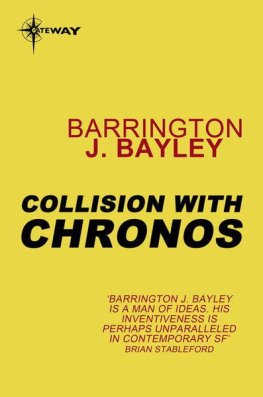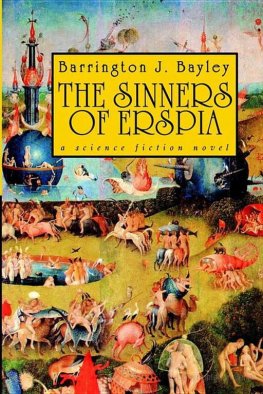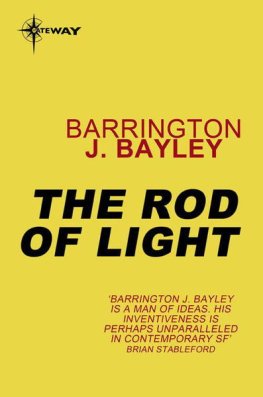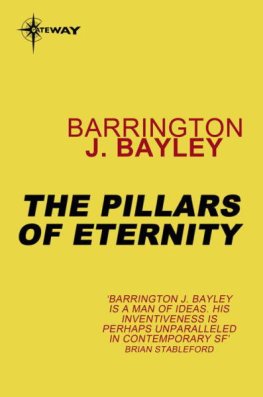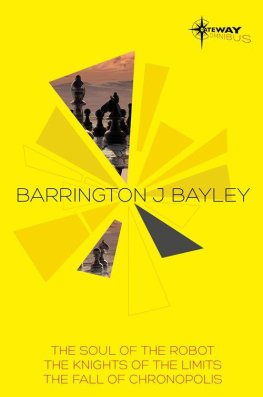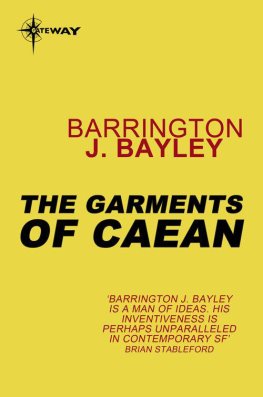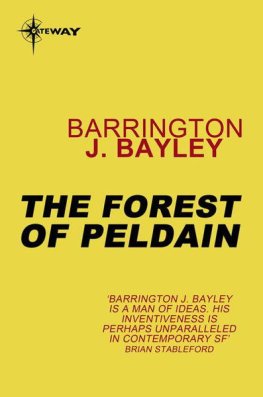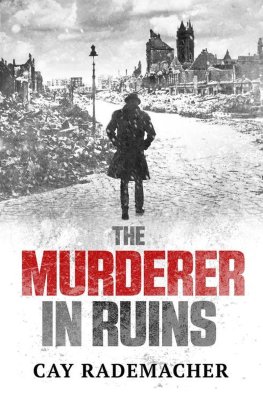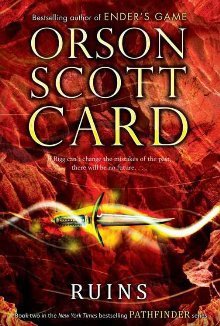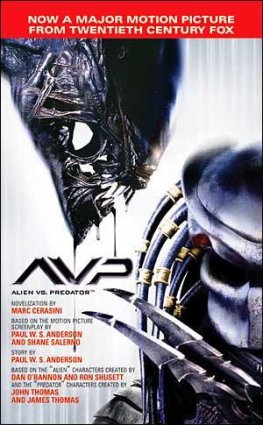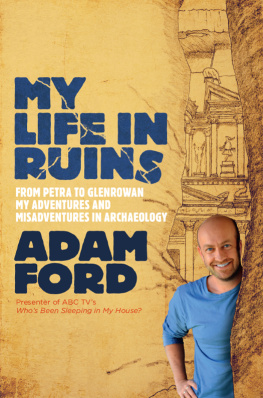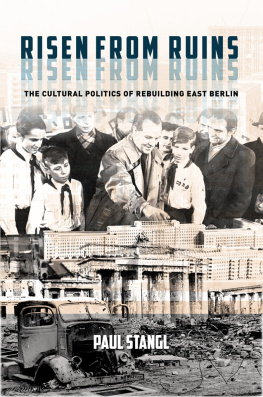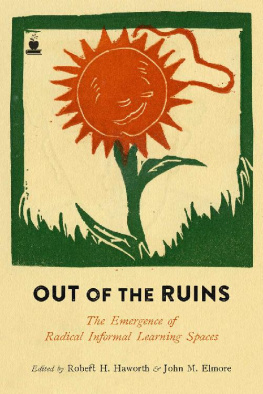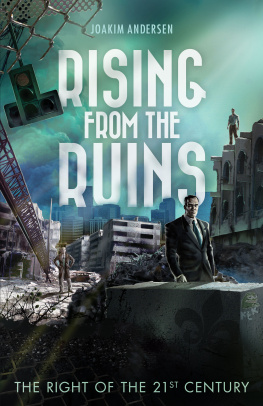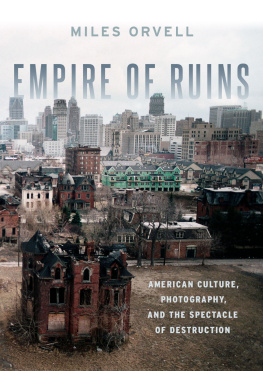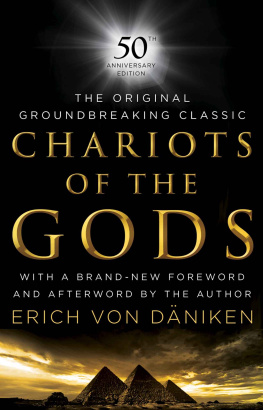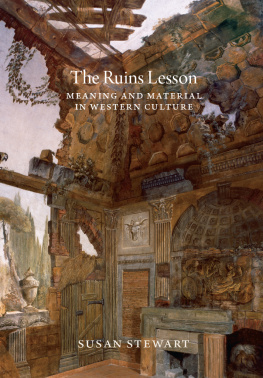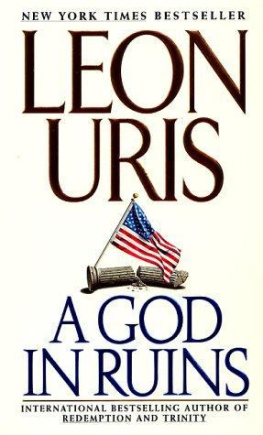Barrington J. Bayley
COLLISION WITH CHRONOS
The picture of time used as a background to this novel can be said to owe something to the discussions by J.W. Dunne, of An Experiment With Time fame, particularly from his book The Serial Universe where he sets forth the regression problem I describe in Chapter Nine.
The account of time I have chosen to derive from these arguments is, of course, a crude, fictionalised one, but it does manage to raise the question of whether the present moment is coextensive throughout the universe, as Physicist Leard Ascar first believed, or whether it is a local process, as taught to him by the scientists of Retort City. I am inclined to imagine that the second version comes closer to the truth, though whether time is associated with biological systems, or with larger bodies such as galaxies, or with even larger structures such as, for instance, as much of the sidereal universe as would be observable from one point, is an open question.
B.J.B.
Rond Heshke wondered if there would ever be victory without arrogance. Banners, everywhere banners.
On the raised forecourt of Bupolbloc, world headquarters of the Bureau of Politics, they hung to form a gigantic grill, like an array of sails a hundred feet tall. Even though the last of the wars against the deviant subspecies the campaign against the Amhraks had been won twenty years before, these banners were still redolent of military glory. And still there were the annual parades, the rousing speeches, the braying documentaries on the vidcast.
The War to Win Earth: that was what they had called it. But now Earth was won irrevocably won for True Man and privately Heshke thought it was time the paean of triumph was played down.
He crossed the forecourt, intimidated by the immense red-and-black canvases, which swallowed up all visitors like ants. In point of fact Bupolbloc was the most impressive of the many fine buildings in the administrative sector of Pradna, soaring up for over a thousand feet of serried glass frontages, and it exuded a sense of power that soon overshadowed Heshkes disrespectful thoughts, making them seem sacrilegious. He entered the spacious foyer and checked his destination on the office plan.
He took an elevator to the twentieth floor and then walked through seemingly endless corridors. All around him passed the tall, handsome men and women of the Titanium Legions, the self-styled Guardians of Earth who currently had succeeded in attaining political supremacy over humanity. Wearing sleek uniforms in black and gold, all of impeccable biological pedigree, they cast disdainful glances at Heshke which he chose not to notice. He accepted that any military elite was apt to revel in its own superiority; he was, after all, but a paunchy, middle-aged civilian who, insofar as anyone could these days, took no interest in politics. His concern was with the past, not the future.
The twentieth floor lay in the precinct of the Bureau of Propaganda and the office he had been summoned to was the Archaeological Office Bureprop (Arch.). He arrived in good time and was kept waiting only ten minutes by the pretty, coolly efficient secretary before being ushered in.
Titan-Major Brourne rose to greet him, smiling jovially.
Good to see you, Citizen Heshke! Sit down, wont you?
Behind Brourne stood a younger man Heshke did not know: a pale, supercilious-looking captain with a deformed left eyelid an unlikely defect to find in a Titan, and which gave him a disconcerting, quizzical expression. Heshke could only suppose that he made up for the deformity in other qualities, or he would never have been permitted to enter the ranks of the Titans.
This is Titan-Captain Brask, Citizen, Brourne said by way of introduction. Ive called him to our meeting for reasons which will become plain later. He sat down and leaned back, placing his large hands squarely on the table. Brourne was a solid-looking man, somewhat too broad for his height, and his tub-like bulkiness was accentuated by the crossed black belts of his uniform. He had thinning brown hair that had once been thick and luxurious, brown eyes and a face that, having seen much and enjoyed much, was now beginning to soften under a new career of desk-work. Heshke preferred him brisk and businesslike rather than jovial, as now. His cordiality always was an introduction to something else.
Heshkes gaze drifted to an archaeological chart that covered the wall behind the two men. It was a good professional piece of work, even if too much biased in favour of the particular interpretations the Titans put upon historical findings. It clearly showed the periodic rise and fall of civilisation, the persistent pattern of all human history. He was still staring at it when Titan-Major Brourne spoke again.
Well, Citizen, and how is progress at the ruins?
I cant speak of any new developments, if thats what you mean. Heshke fumbled uneasily with his briefcase.
The Titan-Majors voice became heavy and unaccommodating. What youre trying to tell me is that theres been no progress.
You cant always depend on progress to follow a straight line, Heshke answered defensively. The first thing to learn about the alien interventionists is how complete their destruction was, how nearly all their traces were erased. In a sense we are lucky that sites like the Hathar Ruins exist at all.
Brourne rose from his desk and paced to and fro, his face becoming serious. Victory is ours, but it must be consolidated, he intoned. The history of the Fall and of the Dark Period must be fully researched and documented, if we are going to be able to give future generations a correct historical perspective.
Titan-Captain Brask continued to gaze on the scene as if from some superior viewpoint while Brourne held forth. Weve beaten the deviant subspecies but they were always the lesser threat. I dont have to tell you what the greater threat is, or how crucial your own area of research is, Citizen Heshke. You know just what the nature of a future struggle would be; we must never again allow ourselves to become vulnerable to an attack from space.
He stopped pacing and looked directly at Heshke once more. Our present ignorance is unacceptable. It has been officially decreed that progress in the research into the alien interventionists is required.
Heshke did not know how to answer him. He wished he was back at the alien ruins, quietly going about his work with his colleagues, not here in this office being browbeaten by Titan officers.
In that case new sites will have to be unearthed, he opined. I would go so far as to say weve already got most of what we can from Hathar. How much can they expect me to deduce, he thought, from empty stone ruins and a few nonhuman skeletons? It really was extraordinary how few artifacts had survived.
For the first time the younger Titan spoke. His voice was precise and condescending.
We do not rely only on your efforts, Citizen. We have our own archaeological teams and they, let me say, are producing better results than you are.
Yes, they would, Heshke thought. Because the Titans already had an ideology, a creed. It was easy to dig up a few remains and recruit them in support of already constructed doctrines. But Heshke thought of himself as a scientist and a scholar, not as an ideologist, and he took facts simply as facts. As far as the alien interventionists went there was altogether too little information to form a complete picture.
Oh, the broad outlines were clear enough, all right. About eight hundred years ago the powerful and mature classical civilisation had suffered a total, cataclysmic collapse. The subsequent Dark Period had lasted nearly four centuries, and only since then had civilisation been built anew.

